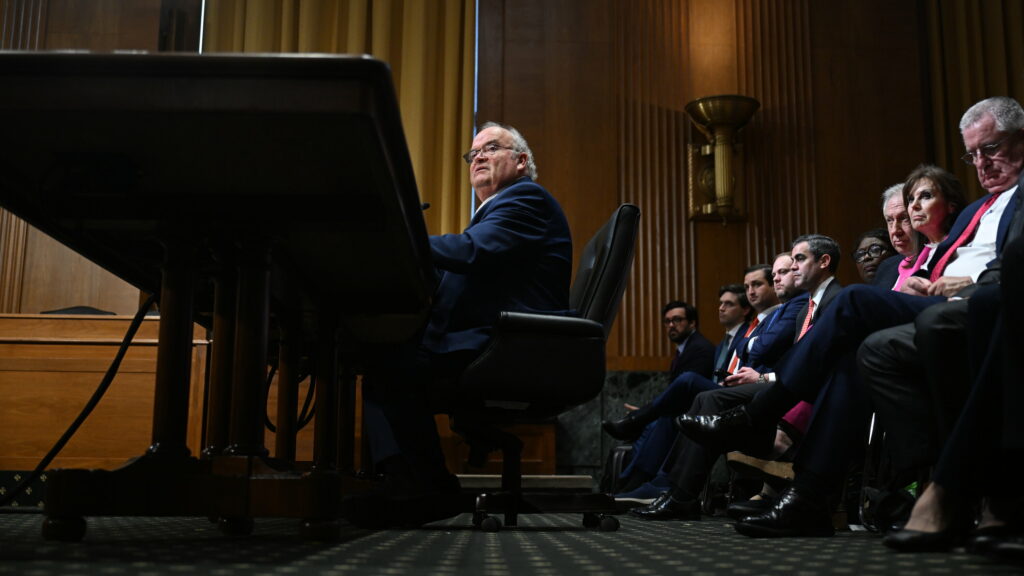In a vote marked by partisan division, the U.S. Senate confirmed former Republican Congressman Billy Long as the new Commissioner of the Internal Revenue Service (IRS).
The appointment comes as the agency faces the most severe budget cuts in decades, raising concerns about its ability to serve millions of taxpayers and combat tax evasion.
You may also read: The IRS Faces the Largest Staff Reduction in Recent History
A Controversial Confirmation
Long’s confirmation process was fraught with political tensions. Democrats on the Senate Finance Committee harshly questioned his independence, citing his closeness to President Donald Trump and his record on tax issues during his time in Congress.
In particular, he was questioned about his stance on controversial tax credits and how he would handle potential political pressure from the White House.
“The IRS will not be politicized under my leadership,” Long said during the hearings in May. “My commitment is to enforce the law fairly and impartially.”
However, his assurances did not convince the opposition, and in the end, his nomination was approved with only Republican votes.
The IRS in Crisis: Unprecedented Cuts
Long’s arrival at the IRS coincides with a drastic reduction in resources ordered by the Office of Government Efficiency, led by entrepreneur Elon Musk.
According to internal reports, the agency has already lost about 30% of its auditors in the last two years, just when it was expected to strengthen its ability to pursue tax evaders.
The cuts include:
- Freezing new hires
- Elimination of incentive programs to retain employees
- Massive reduction of staff in key areas
A recent report by the Treasury Inspector General for Tax Administration (TIGTA) warned that these measures will have “significant impacts on the IRS’s daily operations,” affecting everything from taxpayer service to the modernization of its technology systems.
The Battle for the “Tax Gap”
One of Long’s biggest challenges will be to reduce the so-called “tax gap,” i.e., the difference between the taxes legally owed and what is actually collected. In 2022, this gap reached a record $696 billion, according to official data.
During his hearing, Long promised to “modernize and streamline the IRS to maximize collection.” However, independent experts point out that this will be nearly impossible with the planned cuts.
Trump’s proposed budget for 2026 would reduce IRS funding by 37%, which, according to analysis by Yale University, could cost the government $120 billion in uncollected revenue over the next decade.

The Specter of Tax Reform
Adding to these problems is the possible passage of Trump’s “Big and Beautiful Bill,” which would introduce profound changes to the tax system.
One of the most controversial provisions would require taxpayers to “pre-certify” their children in order to access the Earned Income Tax Credit (EITC), a process that could overwhelm the already weakened IRS.
“It’s a perfect storm,” warned tax policy expert Laura Saunders. “On the one hand, they are asking the IRS to do more with fewer resources, and on the other, they are burdening it with new and extremely complex administrative responsibilities.”
Can technology save the IRS?
Faced with this critical situation, Treasury Secretary Scott Bessent has suggested that artificial intelligence and automation could help compensate for the lack of staff. “The AI boom allows us to reinvent how the IRS works,” he said recently.
However, many doubt that this will be enough. “Technology is useful, but it does not replace the human judgment needed to investigate complex cases of evasion,” former IRS Commissioner John Koskinen told reporters.
With Long at the helm, taxpayers should prepare for:
- Longer delays in telephone service and tax return processing
- Fewer audits of individual taxpayers, but possibly more focus on large corporations
- More frequent errors due to overloaded systems and insufficient staff
Meanwhile, Congress continues to debate the future of the additional $80 billion approved in 2022 to strengthen the IRS, which Republicans are now seeking to cut.

